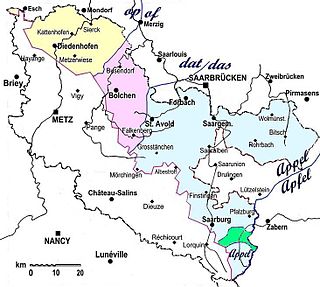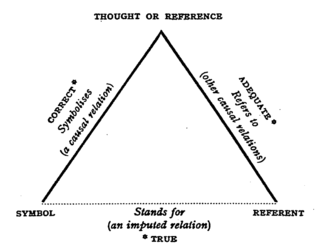 W
WIn German linguistics, the Benrath line is the maken–machen isogloss: dialects north of the line have the original in maken, while those to the south have the innovative (machen). The Line runs from Benrath and Aachen to eastern Germany near Frankfurt an der Oder in the area of Berlin and Dessau and through former Prussia dividing Low Prussian dialect and High Prussian dialect.
 W
WCafé society was the description of the "Beautiful People" and "Bright Young Things" who gathered in fashionable cafés and restaurants in New York, Paris and London beginning in the late 19th century. Maury Henry Biddle Paul is credited with coining the phrase "café society" in 1915.
 W
WEnantiosis, synoeciosis or discordia concors is a rhetorical device in which opposites are juxtaposed so that the contrast between them is striking. Examples include the famous maxim of Augustus, festina lente, and the following passage from Paul's second letter to the Corinthians:By honour and dishonour, by evil report and good report: as deceivers, and yet true;As unknown, and yet well known; as dying, and, behold, we live; as chastened, and not killed;As sorrowful, yet alway rejoicing; as poor, yet making many rich; as having nothing, and yet possessing all things.
 W
WIn linguistics, formalism is a theoretical approach characterized by the idea that human language can be defined as a formal language like the language of mathematics and programming languages. It is contrasted with linguistic functionalism approaches like cognitive linguistics and usage-based linguistics.
 W
WThe International Journal of the Sociology of Language is a peer-reviewed academic journal covering the field of sociology of language. It was established in 1974 by the eminent sociologist of language Joshua Fishman, who has served many years as editor-in-chief,. Today, the editor is Ofelia Garcia Otheguy. Each issue focuses on a single topic within the scope of the journal's field, for example "Sociolinguistic Issues in Azerbaijan", "The Official Language Minorities in Canada" and "Jewish Language Contact". Each issue also publishes a book review and many issues also include a study relating to the sociology of endangered languages or small language communities. The journal is published by Walter de Gruyter.
 W
WThe linguistic boundary in the French department of Moselle is a subset of the wider Romance-Germanic language border that stretches through Belgium, France, Switzerland and Italy.
 W
WLinguistic Imperialism is a book written by Robert Phillipson, research professor at Copenhagen Business School's Department of English, published in 1992 by Oxford University Press.
 W
WThe history of linguistics in the United States begins with William Dwight Whitney, the first U.S.-taught academic linguist, who founded the American Philological Association in 1869.
 W
WA living legend is a person who is both alive and either famous for doing something extremely well, or very famous. Being considered a living legend may be an honor; being related to one can be a mixed blessing. The status has a positive connotation and is generally associated with respectable characteristics, but has also been attained for extreme notoriety.
 W
WThe Meaning of Meaning: A Study of the Influence of Language upon Thought and of the Science of Symbolism (1923) is a book by C. K. Ogden and I. A. Richards. It is accompanied by two supplementary essays by Bronisław Malinowski and F. G. Crookshank. The conception of the book arose during a two-hour conversation between Ogden and Richards held on a staircase in a house next to the Cavendish Laboratories at 11 pm on Armistice Day, 1918.
 W
WThe Sumerian word NIN (𒎏) was used to denote a queen or a priestess, and is often translated as "lady". Other translations include "queen", "mistress", "proprietress", and "lord".
 W
WThe Official Languages Ordinance is an ordinance of Hong Kong enacted for the purpose of specifying the status and use of official languages of the territory. Both Chinese and English are declared official languages with equal status in the ordinance, and are to be used in communication between the government and members of the public. It dictates that all ordinances would be enacted and published in both languages, and allows judicial officers the choice of using either language in court proceedings.
 W
WPrison slang is an argot used primarily by criminals and detainees in correctional institutions. It is a form of anti-language. Many of the terms deal with criminal behavior, incarcerated life, legal cases, street life, and different types of inmates. Prison slang varies depending on institution, region, and country. Prison slang can be found in other written forms such as diaries, letters, tattoos, ballads, songs, and poems. Prison slang has existed as long as there have been crime and prisons; in Charles Dickens' time it was known as "thieves' cant". Words from prison slang often eventually migrate into common usage, such as "snitch", "ducking", and "narc". Terms can also lose meaning or become obsolete such as "slammer" and "bull-derm."
 W
WUkrop is a Russian ethnic slur referring to Ukrainians.
 W
WVoice Finger is a software tool that enables users to control the mouse cursor and keyboard through speech recognition. Voice Finger improves on the default Windows Speech Recognition tools by reducing the number or length of voice commands required to carry out various tasks.